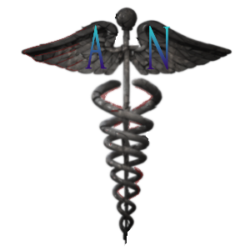What is Medical/Clinical Assessments?
Medical or clinical assessments refer to the systematic process of gathering and evaluating information about a person’s health status to make informed decisions regarding their medical care and treatment. These assessments are conducted by healthcare professionals, including physicians, nurses, and other members of the healthcare team. Medical assessments can cover a wide range of areas, from general health check-ups to specialized evaluations for specific medical conditions. The primary goals of medical assessments are to diagnose health issues, monitor ongoing conditions, and develop appropriate treatment plans. Here are key components and types of medical or clinical assessments:
Key Components of Medical Assessments:
- History Taking:
- Gathering information about the patient’s medical history, including past illnesses, surgeries, medications, and family history.
- Physical Examination:
- Systematic examination of the patient’s body to assess general health, identify abnormalities, and gather important clinical data.
- Vital Signs Measurement:
- Recording vital signs such as blood pressure, heart rate, respiratory rate, and body temperature to assess overall physiological function.
- Laboratory Tests:
- Conducting blood tests, urine tests, imaging studies, and other diagnostic procedures to obtain objective data about the patient’s health.
- Diagnostic Imaging:
- Using technologies such as X-rays, CT scans, MRI, and ultrasound to visualize internal structures and identify abnormalities.
- Functional Assessments:
- Evaluating the patient’s ability to perform daily activities, mobility, and cognitive function.
- Mental Health Assessments:
- Assessing mental health through interviews, questionnaires, and observations to identify psychiatric conditions or emotional well-being.
- Specialized Assessments:
- Conducting assessments specific to certain medical specialties, such as cardiology, neurology, orthopedics, etc.
- Nutritional Assessment:
- Evaluating the patient’s nutritional status, dietary habits, and potential nutritional deficiencies.
- Risk Assessment:
- Identifying risk factors for specific health conditions and developing strategies for prevention.
- Medication Review:
- Reviewing the patient’s current medications, including prescription and over-the-counter drugs, to ensure proper management.
Types of Clinical Assessments:
- Comprehensive Physical Exam:
- A thorough examination of the entire body to assess overall health.
- Preventive Health Assessments:
- Check-ups and screenings to detect and prevent potential health issues.
- Cardiovascular Assessment:
- Evaluating heart health through tests like ECG, stress tests, and cardiac imaging.
- Neurological Assessment:
- Assessing the nervous system, including the brain and spinal cord, to identify neurological disorders.
- Orthopedic Assessment:
- Evaluating the musculoskeletal system to diagnose and manage conditions related to bones, joints, and muscles.
- Gastrointestinal Assessment:
- Examining the digestive system to identify gastrointestinal disorders.
- Pulmonary Assessment:
- Assessing respiratory function and lung health.
- Psychiatric Assessment:
- Evaluating mental health through interviews and assessments to diagnose and manage psychiatric conditions.
- Geriatric Assessment:
- A comprehensive evaluation of health and functional status in elderly individuals.
- Pediatric Assessment:
- Assessing the health and development of children.
Medical assessments play a critical role in personalized healthcare, helping healthcare professionals tailor treatment plans to meet the unique needs of each patient. The information gathered during assessments informs diagnoses, treatment decisions, and ongoing patient care.

